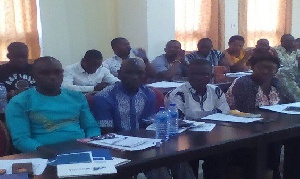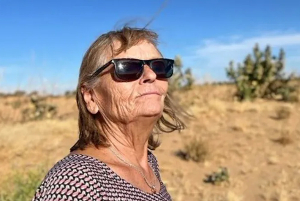Dr George Asekere, a Political Science Lecturer, has called on the Metropolitan, Municipal and District Assemblies (MMDAs) to provide the enabling environment for vagrants to work.
He said bye-laws in principle were good to ensure sanity in society but should not be used to criminalize poverty.
Dr Asekere made the call in an interview with the Ghana News Agency on the sidelines of the launch of the Crime Check Foundation's (CCF) OSIWA-funded "Decriminalizing Vagrancy Laws and Advocacy" (DVLA) Project in Accra.
The Project is to create an enabling environment for vagrants to know, claim and exercise their rights to end the criminalization of poverty and homelessness in Ghana.
It is also to increase public awareness on vagrancy laws and their effects on vagrants in Ghana, increase citizen's capacity and oversight to monitor vagrancy laws and their effects on the poor and homeless.
On December 4, 2020, the African Court on Human and People's Rights came to the rescue of these vagrants through an opinion ruling following an application by the Pan African Lawyers Union.
The Court held that vagrancy laws or laws which tend to affect mainly the poor contravened the African Charter of Human and People's Rights and other international Human Rights Instruments that Ghana has ratified.
Their submissions defined vagrancy laws as laws that criminalize the status of individuals as being poor, homeless or unemployed as opposed to specific reprehensible acts.
He said the 2020 ruling by the African Court to the effect that it was illegal to imprison vagrants should be a wake-up call.
He said CCF had demonstrated through evidence-based documentaries the extent to which "we have used or watched the laws used to criminalize poverty."
He said the choice of advocacy to broaden the discourse on vagrancy laws was in order.
Act 462 and L.I. 1961 were the laws that provide Central Authorities with the enabling framework by defining the roles of Ministries, Departments, Agencies and the MMDAs, he said.
"I believe the DVLA Project provides the solution because it will help educate vagrants to know and exercise their rights and responsibilities," he added.
He explained that if an assembly had not provided a market for people to sell, "what moral right has that assembly got to arrest and incarcerate vagrants whose 'crime' was to hawk to satisfy their survival instincts."
Dr Asekere said the launch, therefore, marked a major milestone in public discourse on vagrancy laws, compliance and punitive measures as prescribed in the laws and most important reforms that were intended to make life relatively comfortable for the people so that they no longer see poverty as a crime.
Chief Superintendent Courage Atsem, Chief Public Relations Officer of the Ghana Prisons Service, said what was more worrying was the fact that young persons between the ages of 18-25 constituted 50.68 per cent, which was more than half of the total number of inmates admitted into custody.
The PRO also pointed out that 38.13 per cent of the inmates were incarcerated for stealing.
He admitted that the 50.68 per cent meant that many of Ghana’s young people who were supposed to be the country’s future were increasingly getting into conflict with the law.
He revealed that there were situations where inmates were unhappy when they finished their jail term because of the hostile reception that society gave to ex-convicts.
He said many offenders also live on the streets hence they became disappointed after their jail term because they had nowhere to stay.
“There are instances where inmates become worried, moody and sometimes begin to weep simply because they do not know where to return upon discharge since prior to their incarceration, they were living on the streets and therefore dread going back there, “he added.
The one-year project will be rolled out in 12 Metropolitan, Municipal and District Assemblies in three regions: Greater Accra, Ashanti and Central.
The project will sensitize 1200 vagrants about their rights and responsibilities to prevent any misunderstandings with the assemblies.
Mr Ibrahim Oppong Kwarteng, the Executive Director of CCF, said to monitor the progress and effectiveness of the project, a contact centre would be created after the sensitization to address the concerns of vagrants.
General News of Saturday, 5 June 2021
Source: GNA
MMDA's must create enabling environment for vagrants to work - Lecturer
Entertainment












